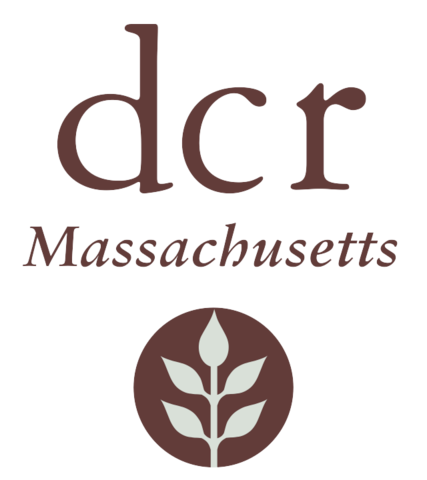- Department of Conservation & Recreation
Media Contact
Carolyn Assa, Communications Director
Northborough — The Department of Conservation and Recreation (DCR), in partnership with the Massachusetts Department of Agricultural Resources (MDAR), kicked-off the second year of the Growing Wild Massachusetts campaign with an event at Bigelow Nurseries in the Town of Northborough. The Growing Wild Massachusetts initiative aims to promote and preserve pollinators throughout the Commonwealth, and offers the public free Growing Wild starter kits and other educational resources to create a pollinator-friendly native plant habitat, boost pollinator populations, and inspire shared responsibility for preserving and enhancing native habitats.
“As stewards of nearly a half a million acres of land across the Commonwealth, the Department of Conservation and Recreation is dedicated to caring for those resources, including pollinators without whom we would not have so many vital and beautiful flowers and other plants,” said Acting DCR Commissioner Stephanie Cooper. “The Baker-Polito Administration is excited to continue the Growing Wild Massachusetts initiative and it is our hope that everyone takes advantage of our free pollinator kits this year.”
Pollinators include bees, birds, bats, butterflies and other species. Over 45 percent of agricultural commodities in Massachusetts rely on pollinator species for crop pollination and food production. Pollinator species provide significant environmental benefits that are necessary for maintaining healthy, diverse ecosystems, and produce valuable products, including honey, propolis, royal jelly, and wax.
“As the largest agricultural sector in the Commonwealth, accounting for nearly 30 percent of the total agricultural economy in Massachusetts, our nurseries and greenhouse farms play a vital role in helping to keep our pollinators flourishing,” said MDAR Commissioner John Lebeaux. “As someone who has been part of a multi-generational nursery and landscape business, I’m thrilled that this initiative between DCR and MDAR will continue to strengthen the health and vitality of our agricultural ecosystem. Through its educational component, children and families can learn firsthand how something as simple as planting seeds can create dynamic pollinator habitats that will bring a lasting positive benefit to our environment.”
Despite their importance to our environment, many pollinator species are struggling due to loss of forage and habitat, the spread of invasive plant and insect species, climate change, and improper use of pesticides. In an effort to promote and protect pollinator habitats on DCR land, the agency continues to plant pollinator gardens, manage wildflower meadows, and maintain limited-mow zones. While DCR properties provide a habitat for a variety of native species, public lands alone cannot support the needs of native pollinators. DCR and MDAR are encouraging residents to support the Growing Wild Massachusetts initiative by planting pollinator-friendly native plant habitats in their yards, patios, or window boxes.
Additionally, as part of Growing Wild Massachusetts, DCR and MDAR are partnering with nurseries throughout the state to distribute 1,000 pollinator habitat starter kits featuring live plants and a packet of seeds native to Massachusetts. The kit also contains a trowel, a Growing Wild sign, information about plants and pollinators, and a journal to track seasonal plant growth and pollinator activity. DCR provides educational resources on its website and social media channels and encourages Growing Wild enthusiasts to share their pollinator progress on social media using #GrowingWildMA. The starter kits are expected to be available at participating local nurseries beginning on Wednesday, June 1, 2022. To view a full list of participating nurseries and learn more about the Growing Wild Massachusetts campaign, please visit the agency’s website.
###
